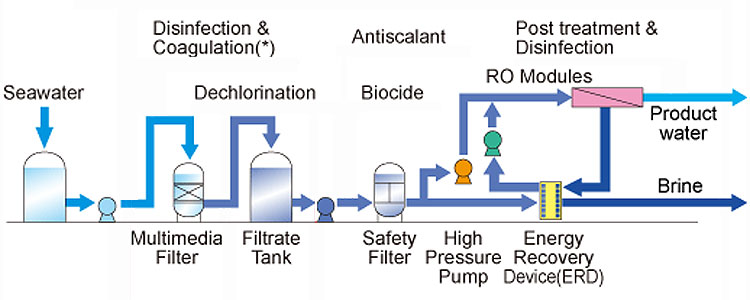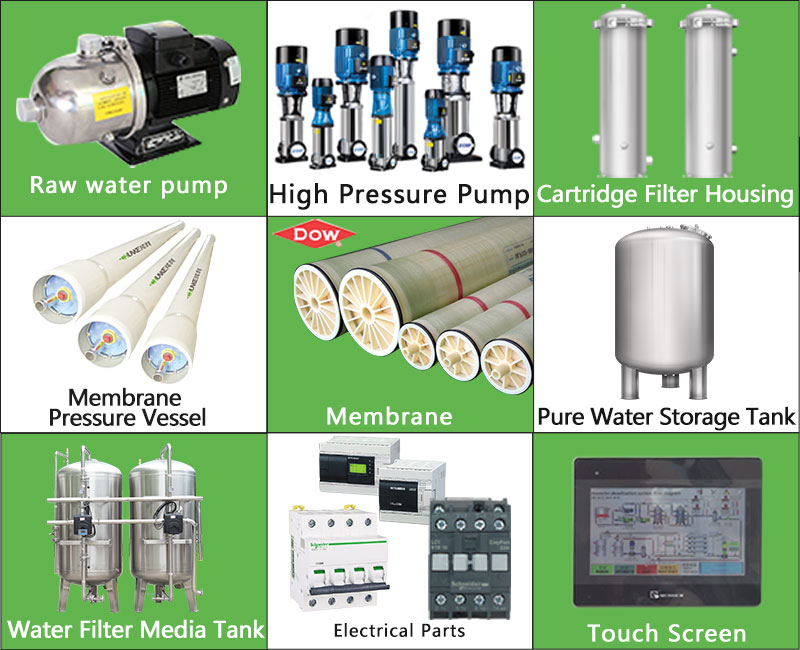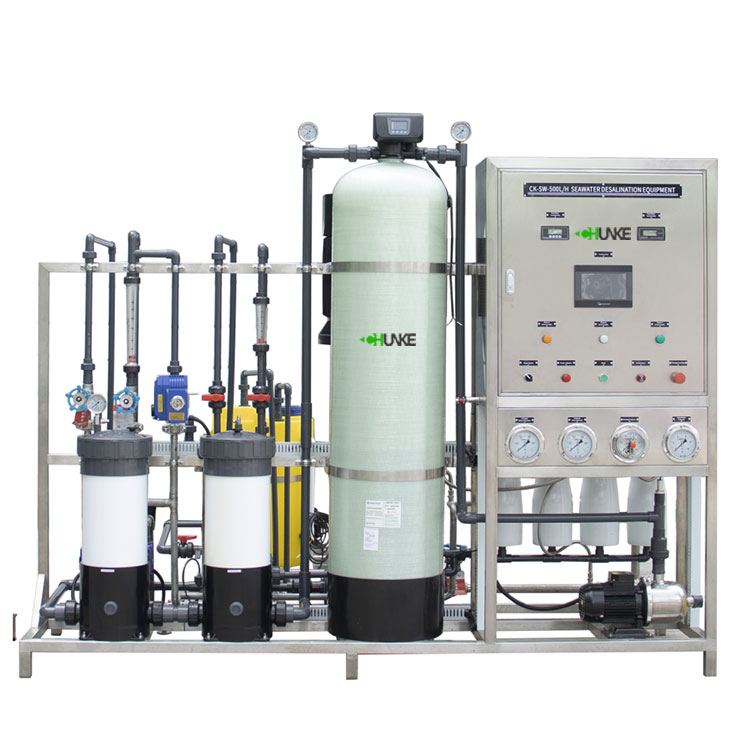What is borehole water?
Borehole water is a water source extracted from deep underground through drilling technology. Because of its deeper source, this water is generally less susceptible to surface pollution and is therefore considered a high-quality water source in many areas. However, the quality of borehole water can vary significantly due to differences in underground geological structures and environments.
So, what is the quality of borehole water? Does it need to be desalted before drinking? This article will explore this issue and further explore the quality and use of borehole water.
Does borehole water need to be desalinated?
Desalination is generally not required. Borehole water is a water source extracted from deep underground through drilling technology. This water usually comes from underground aquifers, which can range in depth from tens to hundreds of meters. Because borehole water comes from deep underground, it is generally less susceptible to surface contamination and is considered a high-quality water source in many areas. Therefore, it can be drunk directly without desalination.
However, the quality of borehole water may change due to the influence of underground geological structure and environment. Borehole water in some areas may contain higher concentrations of minerals, salts or other impurities that may affect the taste and safety of the water. Therefore, in some cases, borehole water may need to be desalinated to make it safe to drink.
Desalination of borehole water typically involves removing minerals, salts and other impurities from the water to bring it up to drinking water standards. These treatments can be achieved through reverse osmosis, nanofiltration or other filtration technologies.

What is the quality and safety of borehole water?
The quality and safety of borehole water varies by region. Because borehole water comes from underground aquifers, its quality depends on factors such as the underground geological structure, the nature of the rock and soil, and how the water flows. The following are the main factors affecting borehole water quality and safety:
1. Mineral content:
Borehole water may contain higher concentrations of minerals such as calcium, magnesium and iron. These minerals are beneficial to health, but too high concentrations may cause water hardness, affecting the taste and life of water equipment.
2. Salt content:
In coastal areas, borehole water may be affected by seawater intrusion, resulting in higher salt content. In this case, the borehole water needs to be desalinated to ensure it is safe to drink.
3. Pollutants:
Underground aquifers can be affected by agricultural, industrial or human activities, causing the water to contain pollutants such as heavy metals, pesticides and chemicals. These pollutants are harmful to health and need to be dealt with.
4. Hygiene standards:
The safety of borehole water also depends on its compliance with local health standards. Regular testing and monitoring ensure water quality and safety.
Overall, the quality and safety of borehole water depends on several factors. Before drinking borehole water, quality testing and monitoring is recommended to ensure it is safe to drink.

How to ensure that borehole water is safe to drink?
Ensuring borehole water is safe to drink requires a range of measures, including testing, treatment and monitoring. Here are the main ways to ensure borehole water is safe to drink:
1. Regular testing:
Regularly test the quality of borehole water, including mineral content, salt content, pollutants and microorganisms. These tests can help identify potential problems and take appropriate action.
2. Handle appropriately:
Based on the test results, select the appropriate water treatment method, such as reverse osmosis, nanofiltration or activated carbon filtration. These methods can remove impurities and contaminants from water and ensure safe water quality.
3. Keep the well clean:
Clean and maintain borehole wells regularly to ensure they are in good sanitary condition. This protects the water quality in the well from external contamination.
4. Monitor changes in water quality:
Continuously monitor changes in the quality of borehole water, including mineral and pollutant content. This can help identify potential problems in a timely manner and take appropriate action.
5. Follow local regulations and standards:
Ensure borehole water complies with local health regulations and standards. This ensures the safety and reliability of water quality.

Summary: Borehole water is an important water source, but its quality and safety vary by region. To ensure that borehole water is safe to drink, a series of measures need to be taken, including regular testing, appropriate treatment and ongoing monitoring. Through scientific methods and compliance measures, users can ensure the quality and drinking safety of borehole water.






